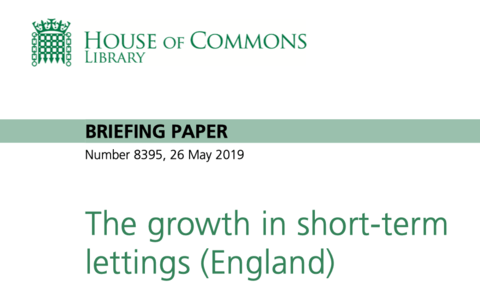Landlords with holiday letting businesses in England are likely to see a hands-off approach with no extra regulation, according to a new report.
Ministers want to improve standards but feel working with landlord bodies is the way forward rather than imposing tough new laws.
A group of researchers have published the report The Growth In Short Term Lettings (England) in the House of Commons Library.
The team note the number of holiday lets have increased dramatically as peer-to-peer services like AirBnB have hit the market – as have complaints about the impact of short term lets in some neighbourhoods.
AirBnB posted almost 225,000 active listings between July 2017 and July 2018 with 58% offering a complete home to rent.
A third of the listings (75,700) were in London, with the number rising to 88,100 in March 2020 – a 500% increase since April 2015.
The report also reveals a Westminster debate is due to discuss the holiday let market in the coming weeks.
“There are no plans to ban the use of residential properties for short-term letting,” said the report.
“It considers that further legislation would be overly bureaucratic and could act as a barrier to households letting out their properties on a short-term basis.
“Instead the government prefers a non-regulatory approach by encouraging the Short-Term Accommodation Association to improve standards and promote best practice in the industry.”
Overall, the report concludes landlords and the tourism sector benefit from AirBnB, with a host earning £3,100 a year.
Liverpool was pinpointed as the city with the highest yields from holiday lets – with a return of 27% on a 50% occupancy rate. London, Edinburgh, Manchester, and Birmingham also rated highly.
However, key concerns were voiced in the report, like commercial operators using residential properties as letting businesses in breach of planning rules and anti-social behaviour by renters.




